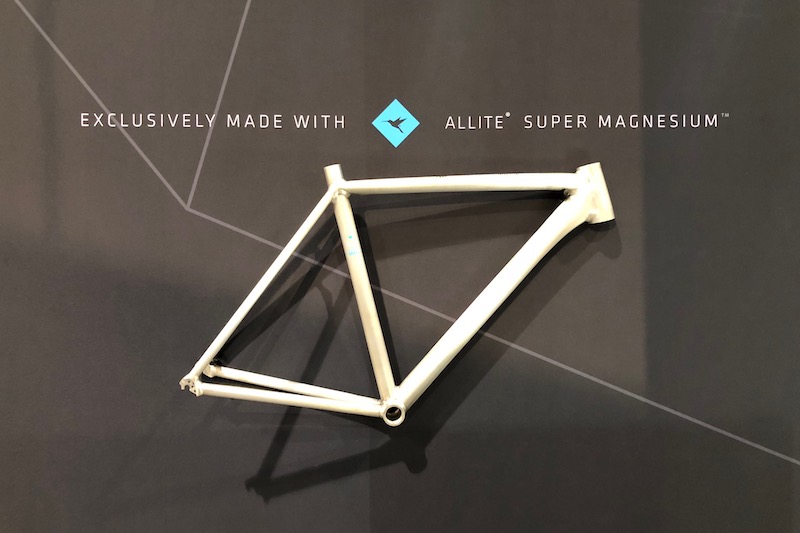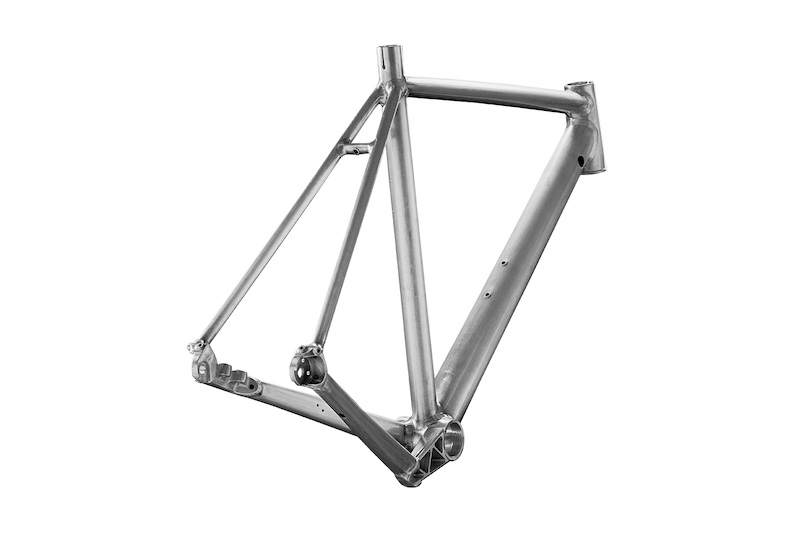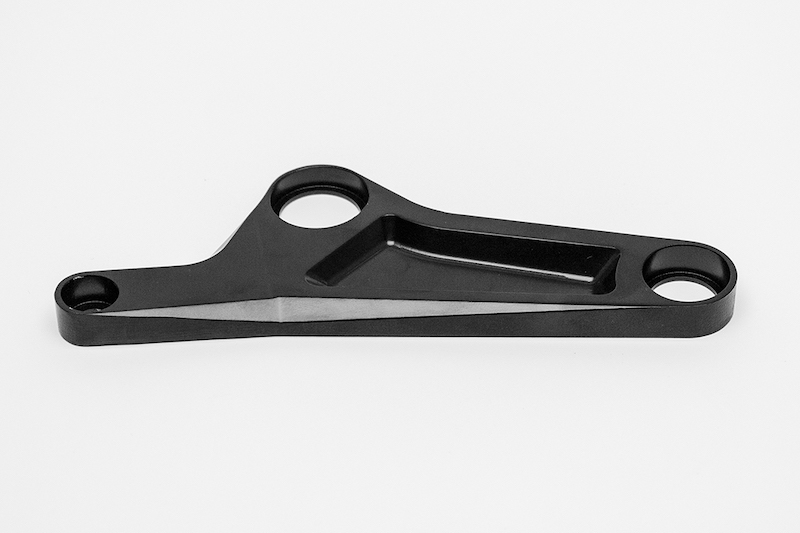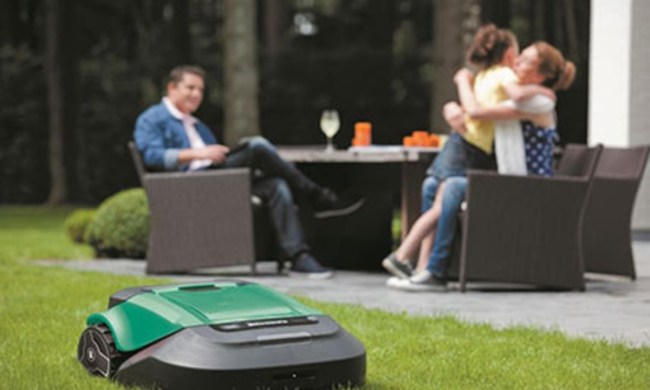When it comes to manufacturing outdoor gear or cycling products, carbon fiber has long been seen as a bit of a wonder material. Lightweight, incredibly strong, and resistant to corrosion, the polymer material has made its way into everything from bike frames and wheel hubs, to ski poles, camping chairs, and even tent stakes.
The downside of carbon fiber is its cost of production of course, which often drives the price of consumer goods made from the material to prohibitively expensive levels. Now, a company called Allite is promising a more affordable alternative to carbon fiber that could deliver similar levels of performance at a substantially lower price, while being more eco-friendly, too.
First developed way back in 2006, super magnesium remained available for use by only the military and the aerospace industry until just a few years ago. That’s when Allite started developing its own proprietary version of the material, which made its official commercial debut at Interbike this past September. Since then, the company has been inundated with requests for more information, along with pitches for potential partnerships. Those inquiries have come not only from within the cycling and outdoor space, but the auto industry, cellphone manufacturers, and numerous others.
Allite president Bruno Maier tells Digital Trends, “Within 30 days of announcing Super Magnesium we had more than 100 leads for potential partners.” He went on to add, “Frankly, it’s been a bit overwhelming considering we’re still a small startup.”
Considering the performance levels that Allite is promising the response from manufacturers isn’t all that surprising. According to Maier, super magnesium is not only stiffer and stronger than aluminum, but is 33 percent lighter as well. And since its core component – magnesium – is the eighth most abundant material on the planet, it is much less expensive to produce. Magnesium can literally be found just about everywhere, which means that on average, products made with this alloy are roughly 50 percent less expensive to build compared to those same products made using carbon fiber.

While impressive, the performance characteristics of super magnesium aren’t the only compelling elements in the story that Allite has to share. In addition to being strong, light, and inexpensive to create, the alloy is also much more environmentally friendly compared to other manufacturing materials. The company says that its metal is 100-percent recyclable, too, turning directly back into pure magnesium during the recycling process. Additionally, the material can be produced using just 40 percent of the energy required to create carbon fiber or aluminum, which should only serve to make it more intriguing to manufacturers.
So when can we expect to see products that start to use Super Magnesium and just who will be making them? On those subjects Maier is more tight lipped. “We have NDAs in place to protect ourselves and our partners at the moment,” he tells us. “But expect some familiar ‘A-level’ brands to begin using our product soon.”
Maier estimates that the first products to use Allite’s new wonder alloy will begin hitting the market in the next six to nine months. He doesn’t specifically say what form those products will take, but considering the official debut of the material was at a bike show, it seems likely that we’ll see inroads into that industry first. After that, the sky is the limit for this promising new wonder alloy.
For more information about super magnesium and its properties visit the Allite website.







